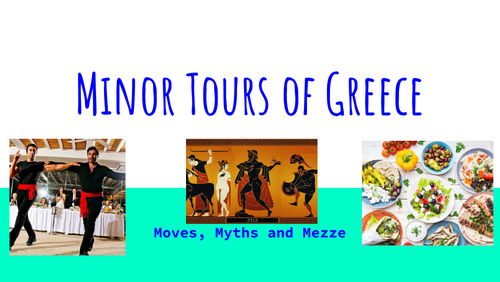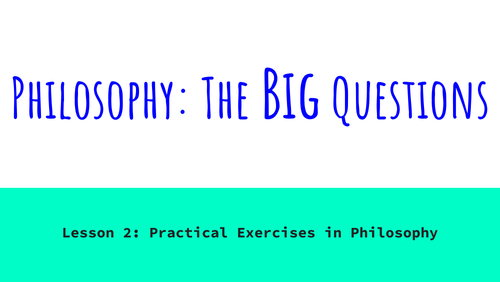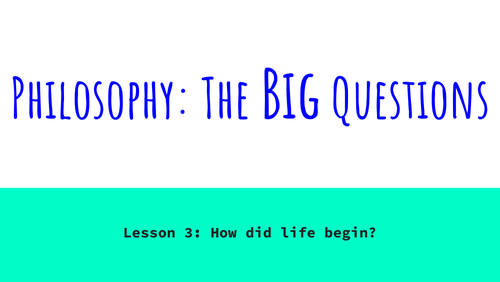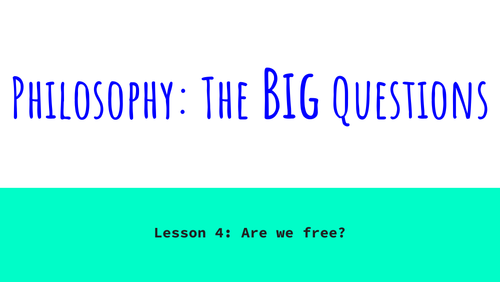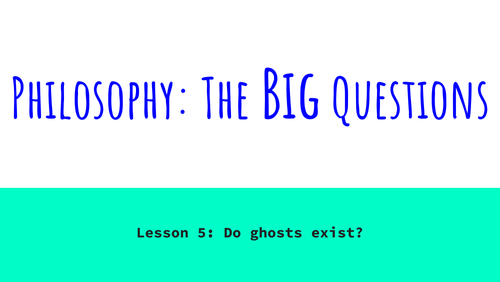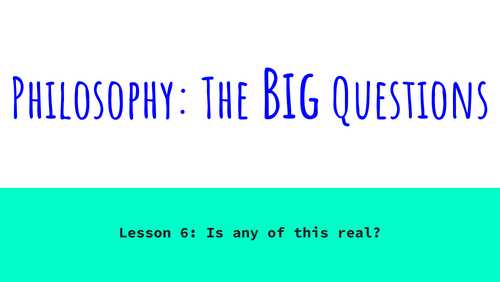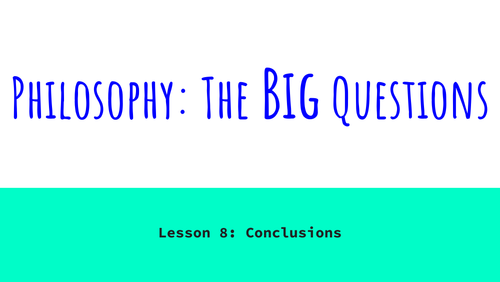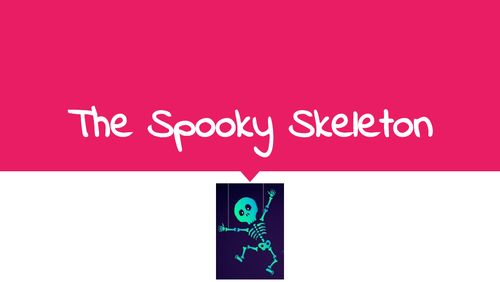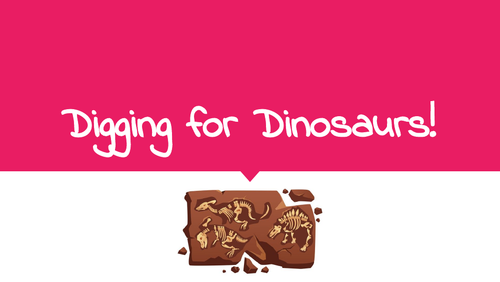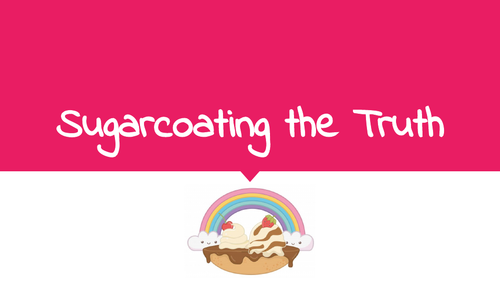
33Uploads
3k+Views
452Downloads
All resources

OCR A Level RS: Key Vocabulary
Key vocabulary packs for the Philosophy, Ethics and Developments (Christianity) topics on Knoword
18 packs in total, each with 40 words
PDF contains link to each pack

Travel Workshop: Minor Tours of Greece
A great resource for a ‘virtual tour’ of Greece
Perfect for 8-12 year olds wishing to be kept entertained/informed and get a taste of Greek culture
Contains the following information:
Fact file
Information on the Olympians and Greek mythology
Best locations to explore Greek mythology
Contains exercises, including the following:
Dance the sirtaki
Point out Greece on a map of Europe
Discuss the difference between mythology and history
Name the mythical creature
Name the food

OCR A Level RS: Timeline of Key Thinkers
A PDF listing some of the most important philosophers/thinkers from the spec, from ancient times to present day
60 thinkers in total
incorporates the new thinkers from the teacher guides on the OCR website
Above each image is the following information:
the philosopher’s name
dates
what they’re known for
key ideas or contributions
notable works

Speeches that Changed the World, 5 Classes
A course on important speeches from historical figures.
The attached PDF contains a link to a Google Drive folder containing 5 sets of Google Slides, each one a separate lesson (outline below).
To make edits, copy and paste the slides into your own Google Drive.
Lesson 1. Moses (the Ten Commandments)
Lesson 2. Socrates (the Apology)
Lesson 3: Elizabeth I (Speech to the Troops at Tilbury)
Lesson 4: John F. Kennedy (Inaugural Address)
Lesson 5: Martin Luther King, Jr. (‘I Have A Dream’)
Each lesson contains the following slides:
A title slide
Course outline + learning objectives
A matching exercise on speech techniques (answers in speaker notes)
Context (videos/research on the speaker)
The speech itself (abridged in some cases)
The legacy/impact of the speech
A 10-question quiz (answers in speaker notes)
A 30-word glossary of key terms
Recommended sources e.g. books, podcasts and websites
Homework: link to an online vocab quiz + task for the speech

Windrush Arrival, Commemoration & Legacy
Presentation on the arrival of the SS Empire Windrush:
Context (changes in Britain)
Fact file
2 personal experiences to compare
Commemoration attempts
Windrush scandal and government response
Links to Black Lives Matter movement today
Recommended sources (websites, books, television shows)
Integrated exercises to reflect on the nature of this history
Suitable for all ages and anyone wishing to understand the UK civil rights movement in more depth
Particularly relevant to those studying History papers about migration in Britain

Philosophy: The Big Questions - Lesson 2
Lesson 2/8 on the Big Questions in Philosophy
Taught to 8-13 year olds, but delivery can be modified to suit a wider age range
Lesson 2: Practical Exercises in Philosophy
Time travel
Paradoxes
Butterfly effect
Doing nothing
Dualism (Descartes): difference between mind and body doing nothing
Enlightenment and meditation
Glossary of new terms
Recommended sources (books, TV shows and films)
Homework for Lesson 3: How did life begin?

Philosophy: The Big Questions - Lesson 3
Lesson 3/8 on the Big Questions in Philosophy
Taught to 8-13 year olds, but delivery can be modified to suit a wider age range
Lesson 3: How did life begin?
Theists
Genesis Creation Myth
Design Argument
Atheists
Big Bang
Evolution
Strengths and weaknesses of both views
A Middle Ground
Compatibility of religion and science through John Polkinghorne
Plato’s Allegory of the Cave
Aristotle’s empiricism
Quick quiz (lesson recap)
Glossary of new terms
Recommended sources (books, TV shows and films)
Homework for Lesson 4: Are we free?

Philosophy: The Big Questions - Lesson 4
Lesson 4/8 on the Big Questions in Philosophy
Taught to 8-13 year olds, but delivery can be modified to suit a wider age range
Lesson 4: Are we free?
Why does it matter?
Determinism: John Locke
Psychological theories
Free will: Christianity
Islam
Quick quiz (lesson recap)
Glossary of new terms
Recommended sources (books, TV shows and films)
Homework for Lesson 5: Do ghosts exist?

Philosophy: The Big Questions - Lesson 5
Lesson 5/8 on the Big Questions in Philosophy
Taught to 8-13 year olds, but delivery can be modified to suit a wider age range
Lesson 5: Do ghosts exist?
Ghosts as souls
Dualism: Plato
Descartes
Monism: Aristotle
Dawkins
Quick quiz
Glossary of new terms
Recommended sources (books, TV shows and films)
Homework for Lesson 6: Is any of this real?

Philosophy: The Big Questions - Lesson 6
Lesson 6/8 on the Big Questions in Philosophy
Taught to 8-13 year olds, but delivery can be modified to suit a wider age range
Lesson 6: Is any of this real?
Why does it matter?
Plato v. Aristotle: recap
Descartes: recap
The ‘dream world’
Simulation argument
Quick quiz
Glossary of new terms
Recommended sources (books, TV shows and films)
Homework for Lesson 7: How can we live a good life?

Philosophy: The Big Questions - Lesson 7
Lesson 7/8 on the Big Questions in Philosophy
Taught to 8-13 year olds, but delivery can be modified to suit a wider age range
Lesson 7: How can we live a good life?
Why does it matter?
Deontological: Kantian Ethics
Teleological: Utilitarianism
Character-based: Aristotle
Strengths and weaknesses of each approach
Quick quiz (lesson recap)
Glossary of new terms
Recommended sources (books, TV shows and films)
Homework for Lesson 8: Conclusions

Philosophy: The Big Questions - Lesson 8
Lesson 8/8 on the Big Questions in Philosophy
Taught to 8-13 year olds, but delivery can be modified to suit a wider age range
Lesson 8: Conclusions
Lesson 1 Recap: Origins of Philosophy
Lesson 2 Recap: Practical Exercises in Philosophy
Lesson 3 Recap: How did life begin?
Lesson 4 Recap: Are we free?
Lesson 5 Recap: Do ghosts exist?
Lesson 6 Recap: Is any of this real?
-Lesson 7 Recap: How can we live a good life?
End of course quiz
Other Big Questions

Guided Reading: Original Elf Story
An original story I wrote about a fearful elf, aimed at 7-9 year olds. Suitable for teaching native English speakers as well as teaching English as a foreign language.
Includes activities with answers and a home assignment.
Teaches the following:
Spelling and phonics (spelling and pronouncing words with ‘ou’ in them e.g. cloud, courage)
Grammar (understanding how to use paragraphs to separate text)
Vocabulary (including mythological terminology)
Emotional intelligence (emphasis on overcoming fears and listening without judgment)
Critical thinking
Each page has the following:
The story itself
Unfamiliar vocabulary defined in age-friendly ways
Discussion points for teachers to raise with students

Guided Reading: Original Butterfly Story
An original story I wrote about a caterpillar becoming a buttefly, aimed at 7-9 year olds. Suitable for teaching native English speakers as well as teaching English as a foreign language. A great way to learn about the butterfly life cycle as well.
Includes activities with answers and a home assignment.
Teaches the following:
Spelling and phonics (spelling and pronouncing words ending in ‘tious’ or 'cious)
Grammar & Vocabulary (understanding the role of adjectives and selecting appropriate ones)
Emotional intelligence (resilience, how to cope with change and the importance of seeking advice in times of change)
Critical thinking
Each page has the following:
The story itself
Unfamiliar vocabulary defined in age-friendly ways
Discussion points for teachers to raise with students

Guided Reading: Original Olympics Story
An original story I wrote about a school project on Ancient Greece, aimed at 7-9 year olds. Suitable for teaching native English speakers as well as teaching English as a foreign language. A great way to learn about the Olympic Games and the history of ancient Greece as well.
Includes activities with answers and a home assignment.
Teaches the following:
Spelling and phonics (spelling and pronouncing words with ‘ough’ in them e.g. rough, tough)
Grammar (understanding how to use possessive apostrophes and apostrophes in contractions)
Vocabulary (including Greek words)
Emotional intelligence (emphasis on teamwork, cooperation and healthy competition)
Critical thinking
Each page has the following:
The story itself
Unfamiliar vocabulary defined in age-friendly ways
Discussion points for teachers to raise with students

Guided Reading: Original Skeleton Story
An original story I wrote about the skeletal system and Halloween, aimed at 7-13 year olds. Suitable for teaching native English speakers as well as teaching English as a foreign language.
Includes three activities with answers and one home assignment.
Teaches the following:
Figurative language (similes/metaphors)
Descriptive language
Type 1 conditional
Vocabulary
Emotional intelligence (overcoming fears)
Critical thinking
Comprehension
Life skills
Each page has the following:
The story itself
Illustrations
Unfamiliar vocabulary defined in age-friendly ways
Discussion/debate points for teachers to raise with students

Guided Reading: Original New Year Story
An original story I wrote about Chinese New Year, aimed at 7-12 year olds. Suitable for teaching native English speakers as well as teaching English as a foreign language.
Includes three activities with answers and one home assignment.
Teaches the following:
Phonics (‘tu’ sound)
Adjectives
Comprehension
Emotional intelligence (not assuming, appreciating other cultures)
Critical thinking
Each page has the following:
The story itself
Illustrations
Unfamiliar vocabulary defined in age-friendly ways
Discussion/debate points for teachers to raise with students

Guided Reading: Original Dinosaur Story
An original story I wrote about dinosaurs, aimed at 7-9 year olds. Suitable for teaching native English speakers as well as teaching English as a foreign language.
Includes activities with answers and a home assignment.
Teaches the following:
Spelling and phonics (different pronunciations of the ‘g’ sound and spellings)
Emotional intelligence (being grateful for experiences)
Critical thinking
Each page has the following:
The story itself
Illustrations
Unfamiliar vocabulary defined in age-friendly ways
Discussion points for teachers to raise with students

Guided Reading: Original Sugar Story
An original story I wrote about nutrition and a debate about banning sugary drinks for children, aimed at 7-13 year olds. Suitable for teaching native English speakers as well as teaching English as a foreign language.
Includes three activities with answers and one home assignment.
Teaches the following:
Spelling/grammar (correct use of ‘affect’ and ‘effect’)
Biology (nutrition)
Type 2 conditional
Vocabulary
Emotional intelligence
Critical thinking
Comprehension
Life skills
Each page has the following:
The story itself
Illustrations
Unfamiliar vocabulary defined in age-friendly ways
Discussion/debate points for teachers to raise with students

Guided Reading: Original Pirate Story
An original story I wrote about pirates, aimed at 7-12 year olds. Suitable for teaching native English speakers as well as teaching English as a foreign language.
Includes three grammar/vocabulary-based activities with answers and one geography-related home assignment.
Teaches the following:
Adverbs
Synonyms
Vocabulary
Emotional intelligence (humility and communication)
Critical thinking
Life skills (leadership)
Each page has the following:
The story itself
Illustrations
Unfamiliar vocabulary defined in age-friendly ways
Discussion/debate points for teachers to raise with students


